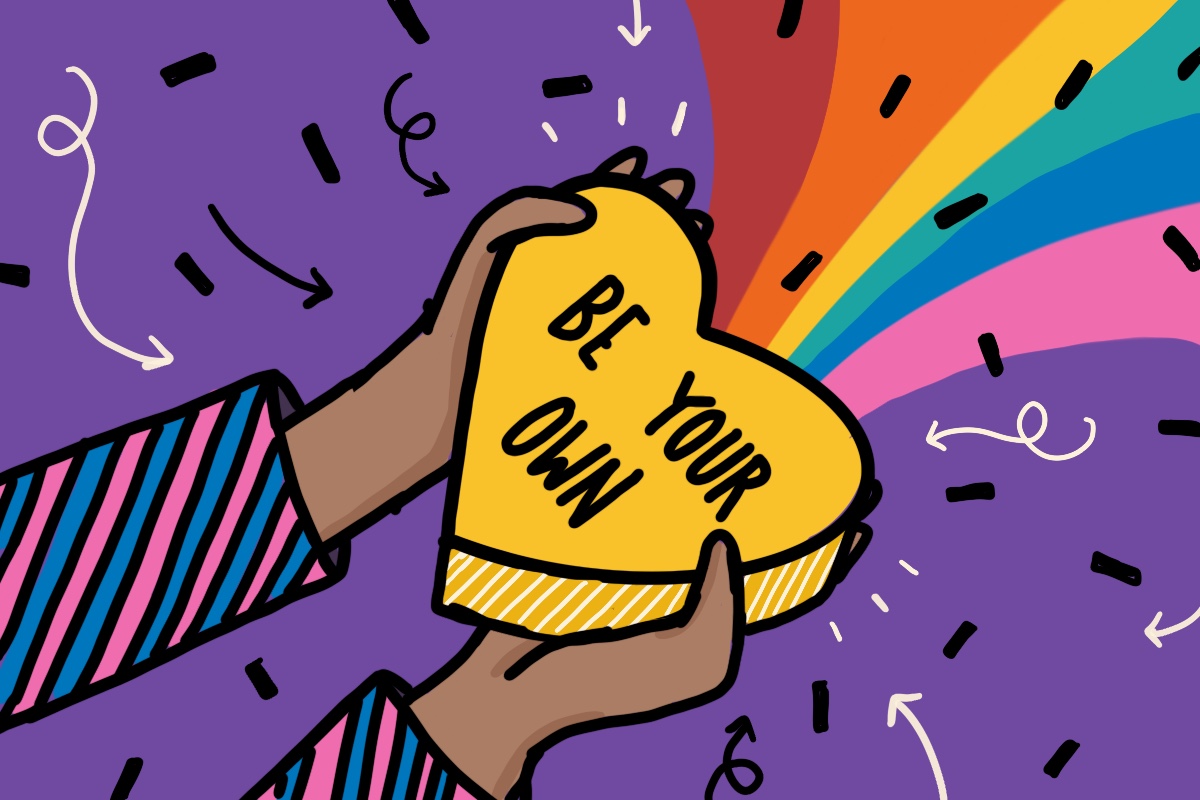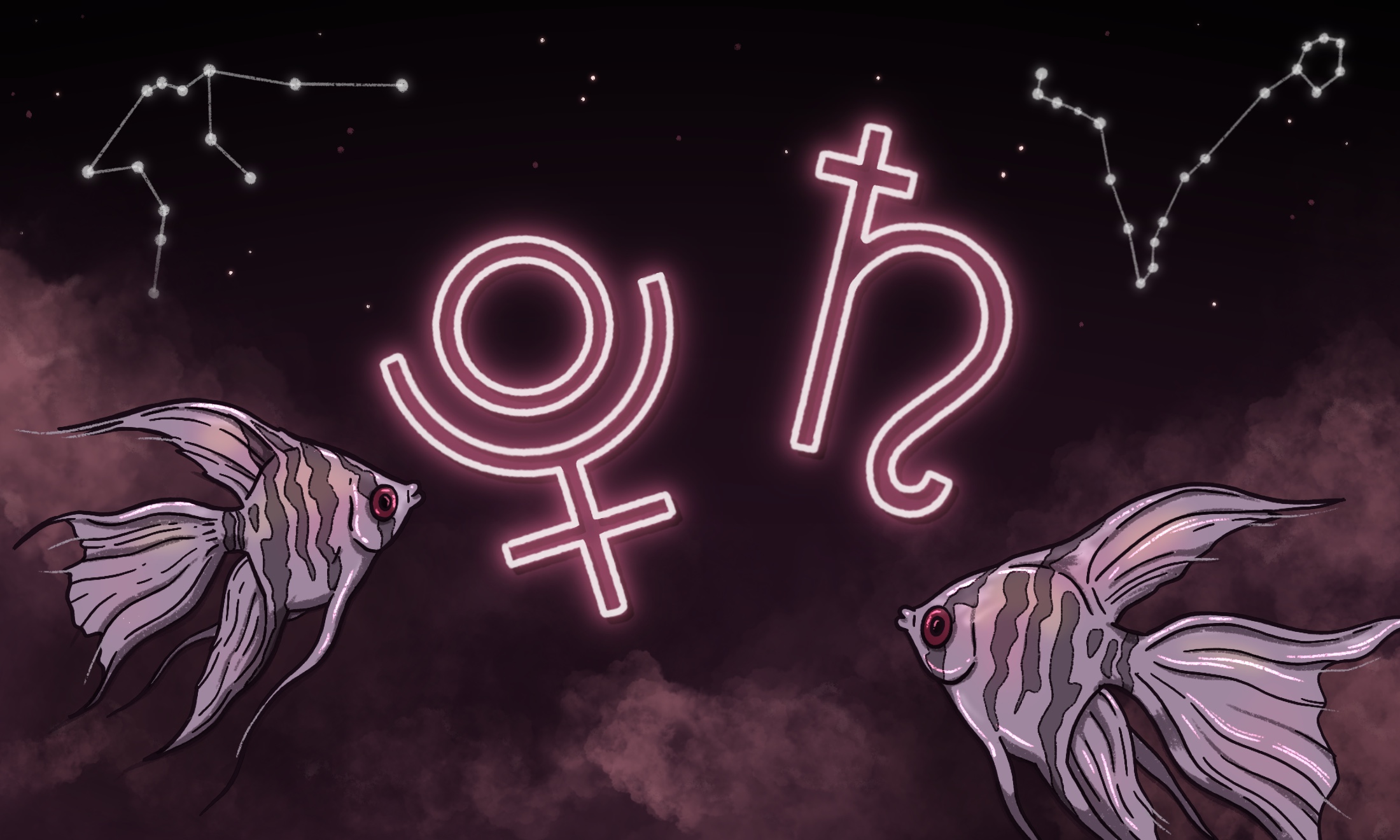
Queeries: I want to start therapy as an act of self-love but where do I begin?
Aisha Mirza
14 Feb 2020
Illustration by Soofiya
Fagony Aunt Aisha Mirza answers your queeries about QTIBPOC health, love and life
Roses are red
Violets are blue
Go to therapy
You sad bitch
When I realised this Queeries column would fall on V-day, I want you to know that I did consider answering questions related to romance, relationships and/or sex. And you can consider this my promise to you that I will one day write a column about the health benefits of fisting, but for now I have decided to focus on the two most important relationships we will ever have: our relationship with ourselves, and our relationship to therapy 🙂
I am using the term “therapy” as shorthand for “talking therapy” which is basically an umbrella term for all types of psychological treatments that involve talking as the primary mode of communication and healing. Therapy should also not be confused with psychiatry, which is much more focused on official diagnosis and prescription of medication. Talking therapy and psychiatry often work together but don’t have to.
“Speak to a therapist you vibe with” will be part of my answer to any question anyone asks me about health so it feels like an important place to start. For those of you who are still wondering if you really need therapy, the answer is yes my G. It doesn’t matter how kind and wise your friends are, how good that weed hits or if you feel fine most of the time (mashallah) – there is simply no substitute for the experience of paying a trained person who does not know you outside of your therapeutic dynamic, to non-judgmentally hear you, hold you and help you grow.
Now I’m listening when you say therapy is a privilege, I really am. And it’s so important to acknowledge the very valid barriers that keep so many of us from accessing the care we deserve; money, time, gatekeeping and fear being but some of them. Therapy is a privilege and I want us to feel empowered and knowledgeable enough to claim that privilege for ourselves because we can actually do that with this one. This will look different depending on your circumstances – some of you may be able to prioritise finding a low-cost therapist and paying for it privately, others may have to rely on free services or the NHS – most likely a mixture of both.
“I didn’t know then that there doesn’t need to be a hierarchy of emotion or trauma, with only those who have it Really Bad being deserving of help”
Committing to therapy is a gorgeous act of self-love, one that allows us to be supported in understanding our behaviour and feeling our feelings and at times that makes it really hard work. It’s a brave and compassionate choice to do that work to help ourselves feel safer and capable in the world, and accountable to ourselves and those we share space with.
With hindsight, I am very grateful that the timing and severity of my first mental health crisis meant that I was introduced early in my life to therapy via the NHS. My hasty introduction to therapy forced me to move quickly through the various gaslighty narratives I had dreamt up – sometimes that I was faking my pain for attention, other times that I was way too broken to be fixed by a chat. I felt guilty that I would be using up resources that other people might need more than me. I didn’t know then that there doesn’t need to be a hierarchy of emotion or trauma, with only those who have it Really Bad being deserving of help.
You don’t need to be having a total meltdown to deserve therapy – it benefits everyone – and the fact there isn’t enough accessible therapy to go round isn’t our fault. At the time of my first therapy session, I had never met anyone who had been in therapy and had been lightly indoctrinated to believe that depression was something white middle-class people invented, with therapy as a self-indulgent extension of that (it’s not). I had fantasies that I would be moody, mysterious and sarcastic – that perhaps I would throw a vase against the wall halfway through and storm out. Eight years and a couple of life-changing therapists later, I’m really glad I didn’t.
Okay, but how do I find a good therapist?
Finding a therapist can be confusing and exhausting and weird and there are all these different types and what do they all mean and do they need to be gay and how will I ever afford it and what if I’m not ready!!!
I hear you, and at this point, I’d like to direct you to this DIY find-a-therapist-kit which was lovingly put together by QPOC therapist-in-training Sabah Choudrey and answers many of these questions including tips on how to negotiate your therapist’s fee (ask). The kit also includes a list of therapist directories you might want to use to begin your search, including one of my favourites, BAATN (The Black, African, and Asian Therapist Network, the largest community of Counsellors and Psychotherapists of Black, African, Asian and Caribbean Heritage).
The potential benefits of having a therapist who shares some of your identity markers such as race, sexuality, gender, gender-experience, class background are huge. Likewise, someone who signifies competency in areas that are important to you such as polyamory, spirituality, sex work, activism or kink is worth investigating more. Among my various fears before starting therapy, was a huge scepticism around the idea of sharing experiences of racism or culture-based trauma with a white person. That is, as we know, a hugely vulnerable act of trust on the part of a person of colour, and one that is very likely to backfire horribly. No matter how many years someone has been training unless they have actively participated in their own anti-racist, anti-capitalist, black liberatory, feminist, decolonial education and practice, they will be likely to need you to explain a lot to them. They may even get defensive if you bring up issues that challenge their own identity or make them feel guilty, and let me tell you, we are not paying for any of that honey.
What question should I ask my therapist? And what characteristics should I look for?
While a QTIBPOC therapist (or thereabouts) is probably a good place to start, we still need to vibe-check. Many therapists will provide a phone and/or IRL consultation for free and you should feel confident asking them anything that may help you decide if they’re right for you or not. These questions might include:
“Is your approach more focused on past trauma or present-day stuff?”
“Am I allowed to email or text you if something comes up between sessions?”
“What does feminism mean to you?”
“What are your thoughts on reverse racism?”
“Do you have a sliding scale payment option?”
“Do you have experience with addiction/eating disorders/panic attacks/dysphoria”
“Would you consider yourself a member of the Beyhive?”
It might take a few sessions with someone to figure out if they’re right for you, or maybe it will feel good and productive straight away, or maybe they’ll be right for you for a period of time or to help you move through something specific and then you’ll want to try something else. There’s no wrong way to do it and you’re absolutely allowed to leave or pause if and when you want to. Different people want, need and respond well to different types of therapists, dynamics, modalities and energy exchanges. However, there are some characteristics that you want to look for in whoever you’re trusting with your care:
· Someone who gives you the feeling that they are with you, meeting you where you are at, really listening to you.
· Someone completely non-judgmental of your life, thoughts and behaviour.
· Someone who is conscious of systematic oppression and their place within it.
· Someone whose intellect you feel you can trust in.
· Someone who encourages you to take up space and use therapy as your space to do what you need in.
· Someone who is not afraid to talk about your dynamic, as therapist and client, and who will encourage you to do the same if you want to.
· Someone you feel safe around.
How do you know if it’s working?
This is a hard one to answer. It’s one of those questions that a therapist would probably turn back on you and say “what does it mean to you for it to work? Do you want something to be different? Do you want to feel differently?” Annoyingly, only you and your therapist will have the answer to this, depending on the kind of work you’ve agreed to do together and how you’re feeling. It’s good to try and trust yourself and what your body and intuition are telling you about how the therapy is working for you. Do you feel like you’re growing or that the potential for growth is there? Do you feel like you’re engaged in a process of naming your struggles, learning about yourself and getting closer to self-regulation, introspection, developing healthy coping mechanisms and being aware of your triggers? Do you feel like you’re moving towards a better sense of owning your life and trusting yourself in new ways?
I know with certainty that without therapy I’d be much sadder, less independent, more anxious, short-tempered and way less compassionate and capable than I am now. I know that with some therapists I felt immediate warmth, humour, interest and genuine care and from others, I felt annoyance, alarmism or low-key boredom (and that I vibe much harder with the former). I’ve learnt so much. That I deserve gentleness, always. That if I try hard enough I can always find a safe place within myself. That intensity isn’t love. And that I truly do not have an eating disorder, I’m just really bad at cooking.
I believe in the unique hope in the kindness of strangers. I know that therapy will always potentially be a place I can go to emotionally offload, to be witnessed in joy or sorrow, to process difficult or confusing experiences or emotions, to laugh about my latest blunder and to hold myself accountable in a safe and non-judgmental environment. It works for me, and if you think it might work for you too you deserve to go get it.
Special thanks to my wonderful therapist and my brilliant friends Joshua Wizman, Kemoy Jemmott, Sabah Choudrey & The Brown Psychologist for their guidance with this column.
This is part of the QUEERIES column







